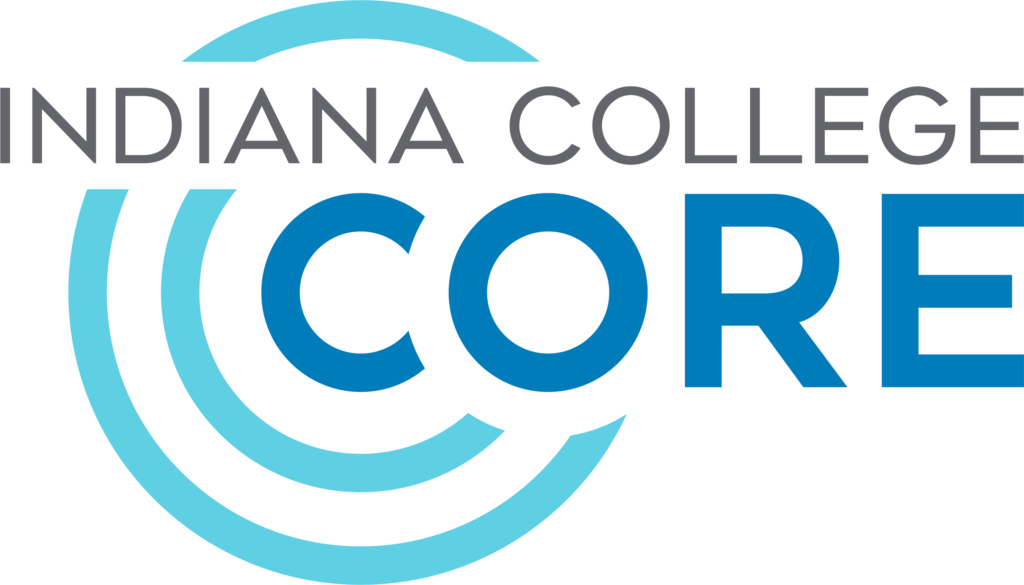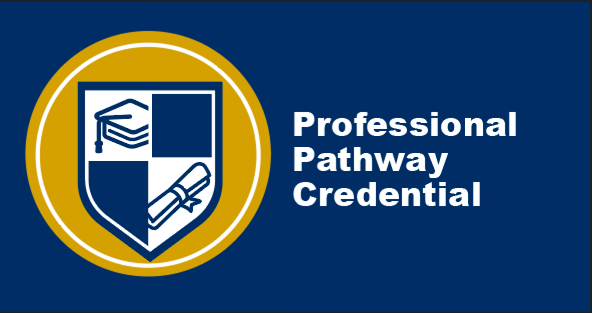Indiana College Core and Dual Credit
More Indiana students than ever are earning college credit while they are still in high school, which is a good thing for everyone!
When you earn college credit during high school, it can save you and your family time and money toward your education after graduation and can help you become better prepared for college.
Broadly speaking, early college credit is any type of college credit earned while in high school, including dual credit and Advanced Placement (AP). There are two ways to earn college credit – at your high school or at a college or university. Earning it at your high school is referred to as “dual credit” and earning it on a college campus is “dual enrollment.”
What is the Indiana College Core?
30 credits guaranteed to transfer
The Indiana College Core is a block of 30 credit hours of general education, college-level coursework which can be transferred between all Indiana public colleges and universities and some private ones. The Indiana College Core helps students save time and money toward their higher education when earned in high school. You can essentially earn a full year of your general education credits for little to no cost (potentially saving you and your family thousands of dollars) and helping you graduate on time or even early from college.
Is the Indiana College Core right for me?
The Indiana College Core could be right for you if it’s offered at your school (ask your school counselor or teacher if it is!) and if you want to get ahead for your education journey while you’re in high school.
There are many benefits for students who participate. Not only does it save you time and money, but by earning the Indiana College Core in high school, you can pursue additional opportunities while in college, like adding a minor, studying abroad, participating in immersive learning opportunities or even graduating from college early! Plus, you can work on your program-specific studies earlier in college, with your general education options already out of the way.
Students who earn the Indiana College Core are more likely to succeed.
Students demonstrating early college success:
- Do not require remediation in math or English before beginning college level work;
- Complete all courses they attempt in their first year of college; and
- Persist to their second year of college
Students who earn the Indiana College Core save money.
Students can earn the Indiana College Core through dual credit, dual enrollment, Advanced Placement (AP) and College-Level Examination Program (CLEP).
Students can earn the Indiana College Core in high school for little to no cost. About 2,100 high school graduates in 2021 earned the Indiana College Core. The average full “sticker” price for a year at a public institution is $22,000, equating to a savings of $46.2 million for that graduating class alone.

Plan your future with My College Core
My College Core is an interactive planning tool for you to use on your journey to earning the Indiana College Core. It is the state’s one-stop shop for the Indiana College Core.
You can find college-level courses offered at your high school that will help you be intentional about which dual credit courses to take to complete it in a way best aligns with your college degree goals.
You’ll be able to share your plans with your parents/guardians and school counselor. As you complete coursework, you can track your progress toward completing the Indiana College Core certificate.

Professional Pathway Credential
30-credit block guaranteed to transfer to any participating private institution
Similar to the Indiana College Core, the new Professional Pathway credential provides the opportunity to complete a minimum of 30 credits of specified general education courses, with all credits fully transferable as a “block” among the six participating private Council for Christian Colleges and Universities (CCCU) institutions, including Anderson University, Bethel University, Grace College, Huntington University, Indiana Wesleyan University, and Taylor University.
These credits are specifically designed to build essential knowledge and skills, ranging from communication and civic literacy skills that will benefit you regardless of your chosen career. Completing this credential of value also counts towards earning the new Enrollment Honors Plus and the Employment Honors Plus diploma seals.
Explore the list of courses for the new credential.
What is Dual Credit?
Dual credit courses provide opportunities for qualified students to earn college credit from a regionally accredited institution while attending high school.
Dual credit courses can be taken at your high school or at a college campus and can be taught by regular high school faculty or college faculty. These courses and grades become part of your academic record and can potentially impact your college grade point average (GPA) and financial aid eligibility.
What is the difference between dual credit and the Indiana College Core?
The Indiana College Core is a block of general education courses that students take as dual credit, but dual credit itself is much broader than the Indiana College Core, and there are different types of dual credit, including liberal arts and career and technical courses (CTE). While most high schools in Indiana offer some form of dual credit, only about 222 schools currently offer the Indiana College Core. Indiana’s high school and higher education organizations are working to eventually ensure all high school students have the option to earn the Indiana College Core, but it is limited for now.
The best way to determine which path suits you best is to talk with your school counselor and consider your future college and career plans.
What about Advanced Placement (AP) courses?
Another option to earn college credit in high school is by taking Advanced Placement (AP) courses.
At the end of the course, you take a test that is graded on a 5-point scale to determine if you’ll obtain college-level credit for the course. Different schools require different scores, so check with your high school counselor or the colleges you’re interested in to make sure the class will transfer to your prospective colleges before signing up.
All Indiana public colleges accept AP courses with a minimum score of 3. You can learn more about AP courses, sign up to take exams and obtain your scores at the College Board.
There is a fee to take any AP exam, but students with financial need may qualify for a reduction or waiver. Learn more about AP exam fees here.
Check here to see which of your Advanced Placement (AP) courses will transfer to Indiana public colleges.
Frequently Asked Questions
This is the invisible first accordion item. Do not remove this or the functionality will be lost.
Visit MyCollegeCore.org for a complete list of frequently asked questions.
Indiana’s Core Transfer Library (CTL) makes it easy to find out. The CTL is a comprehensive, continually updated list of courses that are pre-approved for transfer between all Indiana public college and university campuses and five independent colleges and universities (assuming adequate grades were earned).
Visit TransferIN’s Core Transfer Library page for more information.

